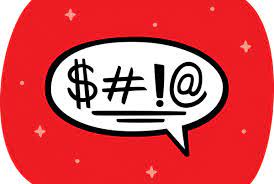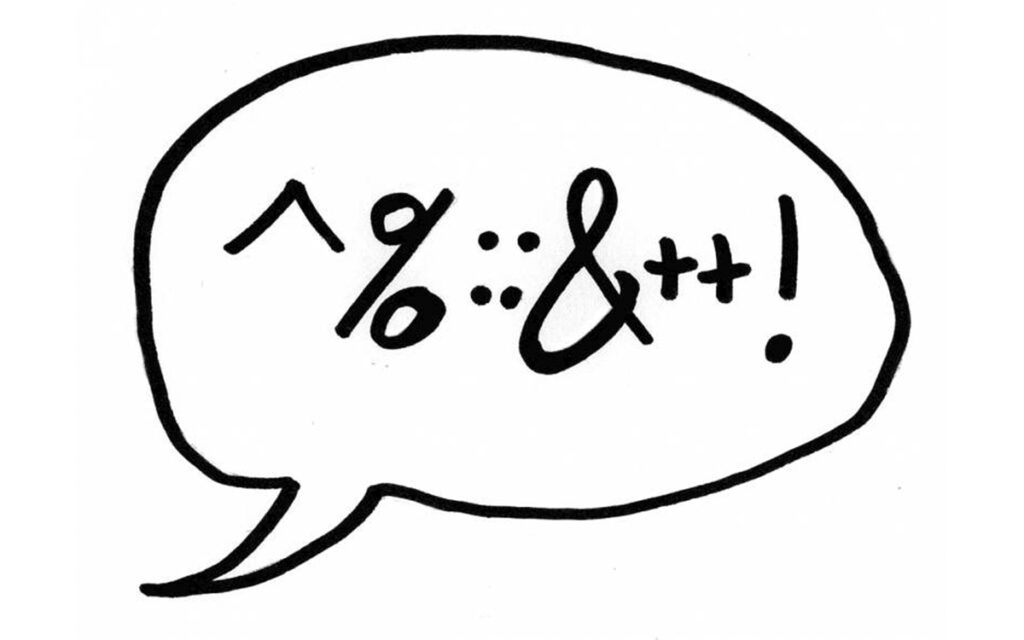Is Swearing/ Cussing Good?

Unlike popular perception, science shows that swearing or cussing can actually be good for people who use them
Concerned about swearing excessively? Scientifically, You Don’t Need to Be.
Studies suggest that swearers are more honest and clever. A few well-chosen words can do wonders for your mental and physical well-being.
You’ve had it with the universe and are ready to lash out. Stop holding back on the profanity, even if you’ve done it before. Some research suggests that letting the words fly is more efficient.
Profanity does not appear to be a negative trait. Cursing reduces stress, reduces pain perception, enhances peer friendship, and is linked to personality traits including linguistic fluency, openness, honesty etc.
And curses have both physical and mental impacts. A study published in the journal Psychology of Sport and Exercise in 2018 discovered that yelling a few expletives out loud while working out increased one’s strength.
According to emeritus psychology professor Timothy Jay of Massachusetts College of Liberal Arts, humans invented taboo language to express emotions.
The world-renowned expert in cursing, Jay says that “there’s a point where it’s just more efficient to say, ‘F*&^ you,’ than it is to hit somebody, we’ve evolved this very efficient way to vent our emotions and convey them to others.”
An Ability to Curse May be a Sign of Intellect
Swearing may be a sign of verbal prowess and may also provide other benefits.
According to Jay, “the benefits of swearing have just recently been revealed due to extensive brain and emotion research, as well as improved technologies to investigate brain anatomy.”
A 2015 study indicated that people with superior oral skills but less education were better at conjuring swear words.
Participants had to come up with F, A, and S in under a minute. It took a minute to think of swear words with the first three letters. The most F, A, and S users also used the most profanity.
If you’re strong at language, you’re good at building a vocabulary of expletives, according to the study’s author, Jay.
Jay went on to correlate swearing to social intelligence.
“Like choosing the correct clothes for the right occasion, knowing where and when to swear is a social cognitive talent,” Jay remarked. That’s an advanced social tool.”
Pain Reliever
Anyone who has been hit understands that pain often results in swearing. Cursing doesn’t help in those situations, according to some pain experts. They hypothesised that swearing might induce people to overstate their suffering.
In 2009, the School of Psychology at Keele University in the UK explored whether swearing affects pain perception. Experts assumed swearing was a “maladaptive” response to pain based on a previous study.
The researchers claim that swearing increases one’s pain tolerance. 67 college students had to dip their hands in icy water while yelling any foul phrase they desired. The results were not the same whether they used a non-taboo word. The research team claims that individuals could keep their hands submerged in the icy water longer while swearing.
Swearing also caused a spike in heart rate, which scientists believe is a “fight-or-flight” response. They say swearing is a warning signal, activating one’s basic protective mechanism and alerting one to danger.
Effectiveness of Argument
Swearing has been shown to affect our social dynamics, as well as our physical and mental health. A 2012 study found that swearing can strengthen an argument’s effectiveness and persuasiveness. Cursing allows us to express ourselves without violence.
People who cuss tend to be more honest and less inclined to lie, according to a new study.
They conducted a series of tests after collecting data on participants’ profanity usage. The study links profanity and honesty. Cursing was connected with interpersonal honesty and general integrity.
Sign of Honesty
Science has found a link between profanity and honesty. In 2017, studies found that persons who cursed told fewer lies and had more integrity than those who did not.
“You’ll come out as more honest when you convey your sentiments using forceful phrases,” Jay says
They cautioned that “the findings should not be interpreted to infer that more profanity a person uses, the less likely he or she is to participate in more substantial unethical or immoral behaviours.”
Sign of Creativity
When people swear, it seems to originate on the right side of their brain, which is commonly referred to as the “creative side.”
Emma Byrne, author of “Swearing Is Good for You,” says patients with right-sided strokes tend to become less emotional, less able to perceive and give jokes, “and tend to just stop swearing even if they swore quite a lot before.
During the Victorian era, doctors began investigating whether patients who had lost their ability to speak still could curse.
Byrne described their swearing as “very fluent.” Reprimands, swear words, and terms of endearment—words with significant emotional content learnt early on tend to be maintained in the brain even when all of our languages are gone.
Swearing appears to originate on the right side of the brain, sometimes known as the “creative side.”
According to Emma Byrne, author of “Swearing Is Good for You,” right-sided stroke victims become less emotional, less able to recognise and give jokes and cease swearing altogether.
During the Victorian era, doctors began investigating whether patients who had lost their ability to speak still could curse.
Byrne called their cursing “fluent.” Emotional words like reprimands and endearments are retained in the brain even when all other language is lost.
Expletives Instead of Punches
Why do we choose to swear? Jay proposed that swearing originated to shield humans from physical harm.
When scared or angered, dogs and cats commonly strike out at their owners. It is possible to express our sentiments without resorting to profanity.”
Saying ‘F**k you across the street’ without really pointing at someone. So I won’t be there.”
A “remote type of hostility,” cursing allows one to express oneself without fear of repercussions.
Swearing, he explained, was a method for him to express himself. Because of this, strangers can tell how I’m feeling. It’s quick and easy, therefore it’s emotional efficient.”

Foulness Fluency
Profanity is sometimes interpreted as a lack of language, knowledge, or intelligence. We cuss when words fail us.
According to Jay, the correlation between swearing and intelligence is a form of “linguistic snobbery.” That’s not true, as any language specialist knows, but I realised it as my understanding grew.”
In 2015, Jay and a research team discovered that “fluency is fluency” independent of language content. Psychologists established a link between fluency in English and fluency in swearing. Thus, swearing may be a sign of better intelligence and a larger vocabulary.
A minute was given to come up with as many words starting with a specific letter of the alphabet. Then they told the volunteers to scream as many expletives as they could in the given time. Experts say people who scored higher on verbal fluency tests were more likely to be able to spout expletives.
Many people are great at producing language, including swear words, adds Jay. They don’t lack language, but rather a large vocabulary.
A Universal Language
Why is foul language so effective? Of course, the taboo plays a role. Swear words exist in practically every language.
It seems to Byrne that a forbidden term and an emotional understanding of how the word may cause others discomfort always comes easily.
People swear. Humans are not the only ones who can curse. Wild chimpanzees use faeces as a social signal to keep people away, said, Byrne. Hand-reared chimpanzees were potty-trained to acquire sign language for “poop.”
As with the phrase sh*t, they started using the poo sign as soon as they learnt it, said Byrne. “For lack of actual sh*t, cussing is only a form of expression. You just toss ideas.”
That is, we should be able to use profanity whenever we choose, regardless of the circumstances or the reactions of others.
And science gives you the reasons to do so!
Reference a) https://www.sciencealert.com/swearing-is-a-sign-of-more-intelligence-not-less-say-scientists b) https://www.stltoday.com/lifestyles/health-med-fit/5-reasons-swearing-is-a-sign-of-intelligence-helps-manage-pain-and-more/collection_c295311b-3bf6-5055-b0dd-c0ff0b214062.html#6 c) https://www.discovermagazine.com/health/worried-about-your-foul-mouth-swearing-could-actually-be-good-for-you



